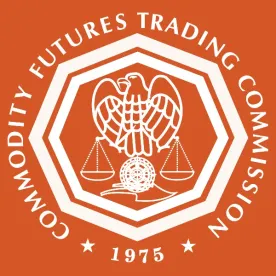Earlier this month, the U.S. Commodity Futures Trading Commission (CFTC) brought what it billed as a “historic enforcement action . . . tied to foreign corruption” against Vitol, Inc., a U.S.-based commodities trading firm doing business under the Vitol Group global corporate umbrella. The press release accompanying the settlement also cited the CFTC’s March 6, 2019, advisory on self-reporting violations of the Commodity Exchange Act (CEA) “involving foreign corrupt practices.”
In the Vitol settlement order itself, the Commission highlighted that “Vitol’s conduct during the Relevant Period involved corrupt payments (e.g., bribes and kickbacks) to employees and agents of certain state-owned entities (‘SOEs’) in Brazil, Ecuador, and Mexico,” which were “made . . . in exchange for improper preferential treatment and access to trades with the SOEs.”
From all of this, the reader could be forgiven for thinking that the CFTC has authority to enforce violations of foreign corrupt practices, as such, in the derivatives markets. But it does not. A close reading of the CFTC’s settlement order shows that Vitol was charged with violations of the CEA’s traditional anti-fraud and anti-manipulation provisions dressed up as “foreign corruption,” an allusion to the Foreign Corrupt Practices Act (FCPA) provisions found in Section 30A of the Securities Exchange Act of 1934. The CFTC, however, has no authority to enforce that statute. Instead, as the U.S. Securities and Exchange Commission’s website explains, “[t]he SEC and the Department of Justice are jointly responsible for enforcing the FCPA” — not the CFTC.
So why all the references to foreign corruption in the CFTC’s Vitol settlement order? Because it makes for interesting reading. Corruption cases often involve many of the same seamy elements you find in a detective story, and therefore generate press for an agency that historically has been associated with decidedly less seamy corn, soybeans and hogs. Such cases also allow the CFTC to appear to be expanding its regulatory remit to cover “foreign corruption” without, however, the need to first gain new statutory or regulatory authority.
But just because Vitol wasn’t really a foreign corruption case doesn’t mean it isn’t noteworthy. The settlement should put the derivatives world on notice that the CFTC will use its traditional anti-fraud and anti-manipulation authority in creative ways to police conduct worldwide if it has knock-on effects in U.S. derivatives markets — not just conduct that originates on U.S. soil. Again, the theories and statutory provisions the CFTC invoked in this settlement aren’t novel, but the overseas theater of operations is something of a departure for the agency.
In addition, the Vitol settlement, which was the product of a joint investigation by the CFTC and the U.S. Department of Justice (DOJ), is important because it provides another example of cooperation between the CFTC and DOJ in an area that was not historically within the CFTC’s regulatory ambit. Market participants are now on notice that, even where foreign corruption impacts markets primarily regulated by the CFTC, the repercussions may go beyond the comparatively benign injunctions and civil penalties that are the usual result of CFTC enforcement actions.




 />i
/>i
